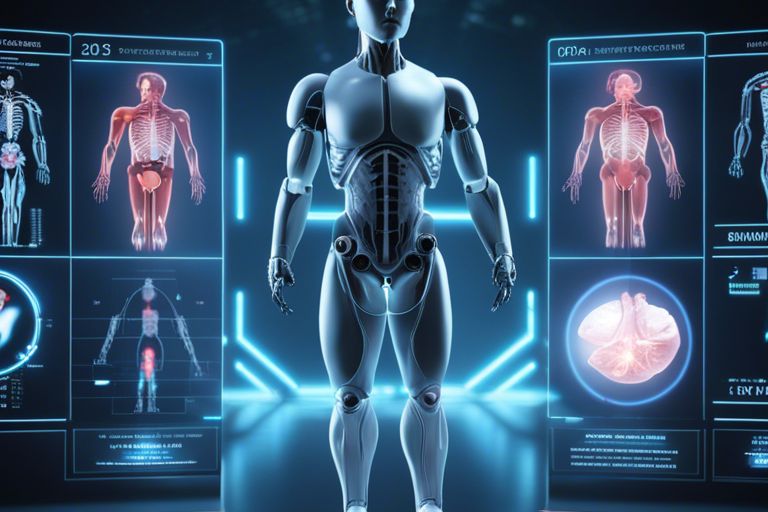The Role of AI in Healthcare – Improving Diagnosis, Treatment, and Patient Outcomes

Many advancements in healthcare have been brought about by the integration of Artificial Intelligence (AI) into various medical practices. AI technology is revolutionizing the way healthcare professionals diagnose illnesses, plan treatments, and predict patient outcomes. With the ability to process vast amounts of data at unparalleled speeds, AI algorithms can identify patterns and trends that may escape the human eye, leading to more accurate and timely diagnoses. This powerful tool is also enhancing treatment strategies by personalizing therapies based on individual patient data, ultimately improving patient outcomes. Despite the immense benefits, it is crucial to consider and address the ethical and privacy concerns surrounding the use of AI in healthcare to ensure that patient information remains secure and confidential.
The Role of AI in Healthcare – Improving Diagnosis, Treatment, and Patient Outcomes
Image Recognition and Analysis
On the forefront of AI-driven diagnostic assistance in healthcare is image recognition and analysis. AI technology can process medical images such as X-rays, MRIs, and CT scans with incredible accuracy and speed, aiding healthcare professionals in detecting abnormalities and making accurate diagnoses.
Predictive Analytics and Risk Assessment
With predictive analytics and risk assessment, AI algorithms can analyze vast amounts of patient data to identify patterns and predict potential health outcomes. By utilizing machine learning, AI can assist in identifying patients at high risk of developing certain conditions, allowing healthcare providers to intervene early and provide targeted treatments.
Assistance in this area extends beyond individual patient care. AI can also help healthcare organizations streamline operations by predicting patient admission rates, optimizing staff scheduling, and even forecasting equipment needs based on historical data.
The Role of AI in Treatment Planning and Personalized Medicine
Drug Discovery and Development
Now, Medicine is revolutionizing the pharmaceutical industry with the use of artificial intelligence in drug discovery and development. AI algorithms can analyze vast amounts of data and predict the effectiveness of potential drug compounds, significantly speeding up the process of drug discovery. This has led to the identification of new therapeutic approaches and the development of personalized medicines tailored to individual patient profiles.
Robotic Surgery and Rehabilitation
Now, Rehabilitation, AI is transforming the field of surgery with the introduction of robotic-assisted surgical systems. These systems allow for more precise and minimally invasive procedures, reducing the risk of complications and improving patient outcomes. Additionally, AI is being utilized in rehabilitation settings to personalize treatment plans and monitor patients’ progress, resulting in more effective and efficient recovery.
AI in robotic surgery not only provides surgeons with enhanced precision and control during procedures but also reduces the risk of human errors. Additionally, personalized rehabilitation plans tailored to each patient’s specific needs can lead to faster recovery times and better overall outcomes. It is crucial to continue exploring the potential of AI in treatment planning and personalized medicine to advance healthcare practices further.
Enhancing Patient Outcomes
Monitoring and Wearable Technologies
Outcomes Unlike traditional healthcare models where patient data is collected sporadically during office visits, monitoring and wearable technologies enable continuous tracking of vital signs and health metrics in real-time. This proactive approach allows healthcare providers to identify potential issues early on and intervene before they escalate, ultimately leading to improved patient outcomes.
Telemedicine and Remote Care
Wearable Outcomes Telemedicine and remote care have revolutionized patient outcomes by providing access to healthcare services from the comfort of home. Patients can now consult with healthcare professionals, receive medical advice, and even undergo virtual examinations without the need for physical presence at a medical facility. This not only enhances convenience for patients but also enables efficient care delivery and prevents unnecessary hospital visits.

Ethical Considerations and Future Directions
Privacy, Security, and Data Governance
For your healthcare data to be used effectively by AI systems, privacy, security, and data governance must be paramount. This involves strict protocols for how data is collected, stored, and shared to ensure patient confidentiality and compliance with regulations like HIPAA. Transparency about how data is being used and obtaining patient consent are also crucial aspects of ethical AI implementation in healthcare.
Impact on Workforce and Accessibility in Healthcare
Considerations for the impact of AI on the workforce and accessibility in healthcare are crucial. While AI can streamline processes and improve efficiency, there are concerns about job displacement and the need for upskilling healthcare professionals to work alongside AI systems. Additionally, ensuring that AI technologies are accessible and equitable for all patients, including those in underserved communities, is crucial for the ethical implementation of AI in healthcare.
To wrap up
The role of AI in healthcare is pivotal in improving diagnosis, treatment, and patient outcomes. By leveraging AI tools, healthcare professionals can enhance the accuracy and speed of diagnosing diseases, personalize treatment plans, and achieve better patient outcomes. The integration of AI technology in healthcare is revolutionizing the industry by providing innovative solutions that enhance efficiency, reduce costs, and ultimately save lives. As AI continues to evolve and advance, it is crucial for healthcare providers to embrace this technology to optimize patient care and improve overall healthcare outcomes.






